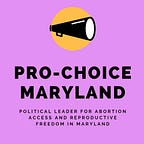There is No Option B: Making Reproductive Healthcare Accessible for Every Body
By: Grace Mottley
For many people who need it, the biggest barrier to emergency contraception (more commonly known as Plan B© or the morning after pill) is its cost. Emergency contraception can range from anywhere between $10 to $100 depending on location, insurance, and place of purchase.
What most don’t know is that emergency contraception is ineffective for those who weigh over 175 pounds1. While some countries, like France or Canada, place this disclaimer in big bold letters on the box, in American pharmacies, it is treated like a secret customers aren’t allowed to know, oftentimes being left off completely.
For those who traditional emergency contraception won’t work for their bodies, there is another option: ella©. Ella is known for being the form of emergency contraception for people who fall outside the weight limits of non-prescription emergency contraception. While it’s often seen as the default pill for people over 175 pounds, ella actually has a weight limit of its own. For people over 195 pounds, ella begins loses efficacy. Despite best efforts to make emergency contraception accessible, ella leaves those above 200 pounds with uncertainty about the effectiveness of this medicine.
Beyond that, ella is only available via prescription — meaning that you need to find a doctor, make time for an appointment, get there, and get to the pharmacy in time for the drug to still be effective. These are only some of the barriers that prevent people from accessing necessary and time sensitive reproductive healthcare, while simultaneously racking up costs that those who are under 175 pounds are absolved from.
Plan B- One Step might grace the aisles of many pharmacies and grocery stores, but access to emergency contraception still doesn’t exist for those with a high-BMI or people over 190 pounds. Access to reproductive healthcare is not just the ability to physically access the pill, but a question of how expensive, efficient, and possible it is to actually attain.
The lack of information about emergency contraception for high-BMI people tells us more about our culture’s obsession with thinness as a marker of health than the inner workings of a pharmacy.
A recent study published in the National Library of Medicine demonstrates evidence that taking two traditional doses of emergency contraception could be the right dosage for people over the weight limit2. The study has a small sample size, meaning more widespread research needs to be conducted before doubling doses becomes a safe option for people over 175 pounds.
Instead of working to create emergency contraception that works for all people and bodies, we’re studying how to fit the needs of high-BMI people into a system they were not built to exist in. People of all sizes, including those over 190 pounds, deserve access to medication that works for their bodies specifically, free from the shame that often comes with doctors appointments or the cost of buying two doses of the same drug.
When we refuse to make reproductive healthcare accessible to people simply because of their weight, we deny them the right to control their own body.
Every body deserves the ability to access medication that works for them, regardless of their weight or BMI. Every body deserves easy access to reproductive healthcare that works for them.
1 Vogel L. (2015). Rethink weight limits on morning-after pill. CMAJ : Canadian Medical Association journal = journal de l’Association medicale canadienne, 187(10), 719–720. https://doi.org/10.1503/cmaj.109-5098
2 Edelman AB, Cherala G, Blue SW, Erikson DW, Jensen JT. Impact of obesity on the pharmacokinetics of levonorgestrel-based emergency contraception: single and double dosing. Contraception. 2016 Jul;94(1):52–7. doi: 10.1016/j.contraception.2016.03.006. Epub 2016 Mar 18. PMID: 27000996; PMCID: PMC4944814.
